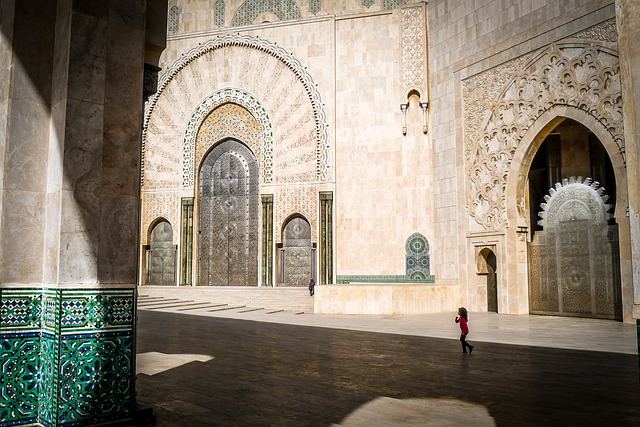The Mediterranean region, a melting pot of civilizations, is home to a rich tapestry of religious traditions and customs. From ancient practices to contemporary rituals, the religious landscape of the Mediterranean is as diverse as its history. Let’s explore the various religious traditions and customs that define this vibrant region.
1. Christianity
Eastern Orthodox Christianity
- Greece: The Greek Orthodox Church plays a central role in Greek culture and daily life. Key customs include the celebration of Easter, marked by midnight church services, feasts, and the breaking of red-dyed eggs.
- Russia: While not Mediterranean but influential in the region, Russian Orthodox Christianity features customs such as the Divine Liturgy and the celebration of religious festivals like Easter with elaborate rituals and feasts.
Roman Catholicism
- Italy: Home to the Vatican, Italy is a heartland of Roman Catholicism. Customs include the weekly Mass, the celebration of saints’ feast days, and significant events like Christmas and Easter, marked by special liturgies and processions.
- Spain: Spanish Catholic traditions are vibrant, with major events like Semana Santa (Holy Week) featuring elaborate processions, and the festival of La Tomatina, although secular, rooted in the feast day of a local saint.
Protestant Christianity
- France: While predominantly Catholic, France has a significant Protestant minority. French Protestants celebrate religious holidays with church services and community gatherings, emphasizing simplicity and community.
2. Islam
Sunni Islam
- Turkey: A predominantly Sunni Muslim country, Turkey celebrates Islamic traditions such as Ramadan, characterized by fasting from dawn to dusk, and Eid al-Fitr, marked by communal prayers, feasts, and charity.
- Egypt: Egyptian Muslims observe traditions like the call to prayer (adhan) five times a day, Friday communal prayers (Jumu’ah), and significant festivals like Eid al-Adha with animal sacrifices and family gatherings.
Shia Islam
- Lebanon: Lebanon’s Shia Muslim community is significant, with traditions including Ashura, commemorating the martyrdom of Imam Hussein with processions and public displays of mourning.
- Iran: Influencing parts of the Mediterranean through historical ties, Iranian Shia customs include Muharram processions and rituals like the Ta’zieh, a dramatic reenactment of the events of Karbala.
3. Judaism
Sephardic Judaism
- Spain: Once a center of Sephardic Jewish life, Spain’s Jewish customs include the celebration of holidays such as Passover with the Seder meal and Hanukkah with the lighting of the menorah.
- Morocco: Moroccan Jews celebrate Mimouna, a post-Passover celebration with traditional foods and music, reflecting a blend of Jewish and local Moroccan traditions.
Ashkenazi Judaism
- Israel: Israel, a melting pot of Jewish traditions, observes customs such as Shabbat with family meals and synagogue attendance, and Yom Kippur, the holiest day marked by fasting and prayer.
4. Eastern Religions
Druze Faith
- Lebanon: The Druze community, mainly found in Lebanon, practices a unique religion with elements from Islam, Christianity, and other philosophies. Their customs include secretive religious rites and community gatherings.
- Syria: Syrian Druze also observe similar traditions, emphasizing community and loyalty, with significant religious holidays like Eid al-Adha.
Baha’i Faith
- Israel: The Baha’i Faith, with its spiritual and administrative center in Haifa, Israel, observes customs such as the Nineteen Day Fast and Ridvan, a festival celebrating Baha’u’llah’s declaration of his mission.
5. Indigenous and Ancient Religions
Berber Traditions
- Morocco and Algeria: The Berber people maintain pre-Islamic traditions blended with Islamic practices. Key customs include the celebration of Yennayer, the Berber New Year, with communal feasts and dances.
Greco-Roman Paganism
- Greece and Italy: While largely historical, the legacy of Greco-Roman religious traditions endures in festivals and rituals. Modern-day reenactments and celebrations like the Panathenaic Festival in Greece honor ancient gods and heroes.
Final Thoughts
The Mediterranean region’s religious traditions and customs reflect its rich history and cultural diversity. From the ancient rituals of the Berbers to the vibrant celebrations of Christianity, Islam, and Judaism, the Mediterranean’s religious landscape offers a fascinating glimpse into the spiritual lives of its people. Whether through grand festivals, daily prayers, or communal gatherings, these traditions continue to shape the cultural fabric of the Mediterranean, highlighting the enduring importance of faith and spirituality in this dynamic region.
Join 900+ subscribers
Stay in the loop with everything you need to know.


